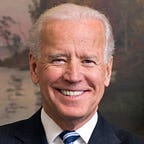The Cancer Moonshot Task Force: Removing Bureaucratic Hurdles and Supporting Scientific Advances
Today, President Obama signed a Presidential Memorandum establishing a first-of-its-kind federal task force to carry out our call for a moonshot to end cancer as we know it.
And on Monday, I will convene and chair the first meeting of that task force, charged with a simple mission — making sure we’re all working from the same playbook.
What that means is we’re bringing together every federal agency that has a part to play, from the Departments of Health and Human Services, Defense, Energy, and Commerce to the National Institutes of Health and Food and Drug Administration. We’ll ensure that we make the most of our federal investments, research and data, computing capabilities, targeted incentives, private-sector efforts, and patient-engagement initiatives.
When it comes to speeding the pace of progress, we’ll clear out the bureaucratic hurdles — and, quite frankly, let science happen.
Now, as I’ve said from the start, I don’t claim to be a cancer expert. But I do have something to offer when it comes to being a catalyst and bringing folks together.
This will be the first time this kind of group has met as a team, charged with this kind of goal.
And we’re going to continue to meet in the months to come — and lay the groundwork for the next Administration.
We’ll build around a few key areas where there seems to be consensus from the cancer community:
First, we’re at an inflection point — and the science is ready.
Right now, we’re on the cusp of incredible breakthroughs in both research and therapies. In just the last decade or less, we’ve seen amazing advances in immunotherapy, in genomics, in virology and combination therapies. The task before us is to break through some of the barriers and do what we can to help speed up the progress, so that we can deliver treatments and increase access to these new approaches for millions more people.
Second, we have the potential to take advantage of big data and advances in supercomputing with greater data sharing.
Almost every cancer center keeps a database of information — genetic history, medical records, and tissue banks — that might hold the key to improving certain cancer therapies. Allowing researchers and oncologists to tap into this treasure trove of information is absolutely vital to speeding up the pace of progress toward a cure. If we ensure this data is interoperable and accessible for scientists, researchers, and physicians, the consensus is that we can absolutely speed up research advances, improve patient care, and get ourselves closer to a cure.
Third, we need to increase access to game-changing treatments.
Right now, only five percent of cancer patients in the United States end up in a clinical trial. Most aren’t given access to their own data. We need to figure out how we can reduce costs and expand access to these trials.
There are a host of other issues we need to address, including how we get drug companies to be part of the solution and the progress we all want to make.
But I’m convinced that together we can find our way answering them — and in the process, we can develop game-changing treatments and deliver them to everyone who needs them.
We’re not trying to make incremental change here.
We’re trying to get to a quantum leap on the path to a cure.
That’s the goal of this moonshot.
To make a decade worth of advances in five years — and, eventually, end cancer as we know it.
This is something everyone can be a part of. Since the President put me in charge of mission control, I have been incredibly touched by the responses from around the country and the world.
I’ve heard from tens of thousands of people — survivors, caretakers, family members — sharing how this horrible disease has touched their lives. I’ve met with hundreds of the world’s top oncologists, cancer researchers and physicians leading the fight, and a number of philanthropists investing billions of their own dollars in this effort.
Wendy Hoke of Bay Village, Ohio is battling breast cancer. She wrote me on the night of the State of the Union — and the eve of her final chemo treatment — telling me she wanted to help with the moonshot initiative. I gave her a call.
Everyone can tell their story just like Wendy. And every single one of them will matter when it comes to making concrete progress toward ending cancer as we know it.
I’m not naïve about the challenges ahead. But I’ve never been more optimistic that we can do big things.
I know we can do this. I truly believe it. And I want you to know that I’ll be focusing the rest of the time I have in office — and the rest of my life — on this effort.
I’ll be keeping you informed along the way.
